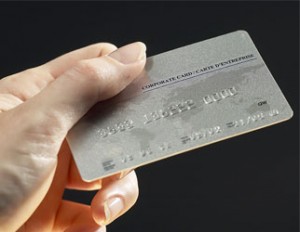Little-known credit card facts
Most credit cards come with a grace period that's somewhere around 21 days but it's retracted if you don't pay your balance in full.
Advertisement
Most credit cards come with a grace period that's somewhere around 21 days but it's retracted if you don't pay your balance in full.
 People have all kinds of misconceptions about credit cards that end up biting them in the butt. If you’re going to use any tool to your advantage, you’ve got to read the instruction manual first. You wouldn’t start up a chain saw without having a look at the safety warnings would you? So you shouldn’t be so willing to whip out that credit card without looking at the safety rules first.
Most credit cards come with a grace period that’s somewhere around 21 days. But that only applies if you pay your balance in full. Leave so much as a one-dollar balance and you’ll be charged interest on all your purchases back to the day they were made or posted.
Low-interest cards are another carrot. But if you don’t make at least your minimum payment within 30 days of your due date, you’ll watch your rate sky-rocket. It can take eons to get that great rate back, if you ever do.
Payments aren’t always applied in the order of your purchases. While you may have bought those shoes before you took that cash advance, there are different rules for different types of transactions. You’ll have to get out your magnifying glass and read the mouse print to see how your card distributes your payments.
Promotional rates don’t last forever. As soon as the promotion period expires, your card will revert to its usually much higher rate. A 1.7% rate may look good now, but if you’re going to end up paying 24.99% later, that balance transfer may not be such a good idea. If you’re being offered a special rate, make sure you mark the expiry date on your calendar–and have the balance paid off–before the big guns come out.
Perhaps the biggest myth that will end up hurting you is the belief that your credit limit reflects what you can afford to spend. There is no co-relation between how much you can afford and how much the credit card company will offer you. Regardless of the limit you are given, it is up to you to spend only as much as you can afford to repay. And the best way to know that? Already have the money in the bank before you whip out your credit card to pay. Failing that, you’re revving up that chain saw without your safety gear on.
People have all kinds of misconceptions about credit cards that end up biting them in the butt. If you’re going to use any tool to your advantage, you’ve got to read the instruction manual first. You wouldn’t start up a chain saw without having a look at the safety warnings would you? So you shouldn’t be so willing to whip out that credit card without looking at the safety rules first.
Most credit cards come with a grace period that’s somewhere around 21 days. But that only applies if you pay your balance in full. Leave so much as a one-dollar balance and you’ll be charged interest on all your purchases back to the day they were made or posted.
Low-interest cards are another carrot. But if you don’t make at least your minimum payment within 30 days of your due date, you’ll watch your rate sky-rocket. It can take eons to get that great rate back, if you ever do.
Payments aren’t always applied in the order of your purchases. While you may have bought those shoes before you took that cash advance, there are different rules for different types of transactions. You’ll have to get out your magnifying glass and read the mouse print to see how your card distributes your payments.
Promotional rates don’t last forever. As soon as the promotion period expires, your card will revert to its usually much higher rate. A 1.7% rate may look good now, but if you’re going to end up paying 24.99% later, that balance transfer may not be such a good idea. If you’re being offered a special rate, make sure you mark the expiry date on your calendar–and have the balance paid off–before the big guns come out.
Perhaps the biggest myth that will end up hurting you is the belief that your credit limit reflects what you can afford to spend. There is no co-relation between how much you can afford and how much the credit card company will offer you. Regardless of the limit you are given, it is up to you to spend only as much as you can afford to repay. And the best way to know that? Already have the money in the bank before you whip out your credit card to pay. Failing that, you’re revving up that chain saw without your safety gear on.
Share this article Share on Facebook Share on Twitter Share on Linkedin Share on Reddit Share on Email